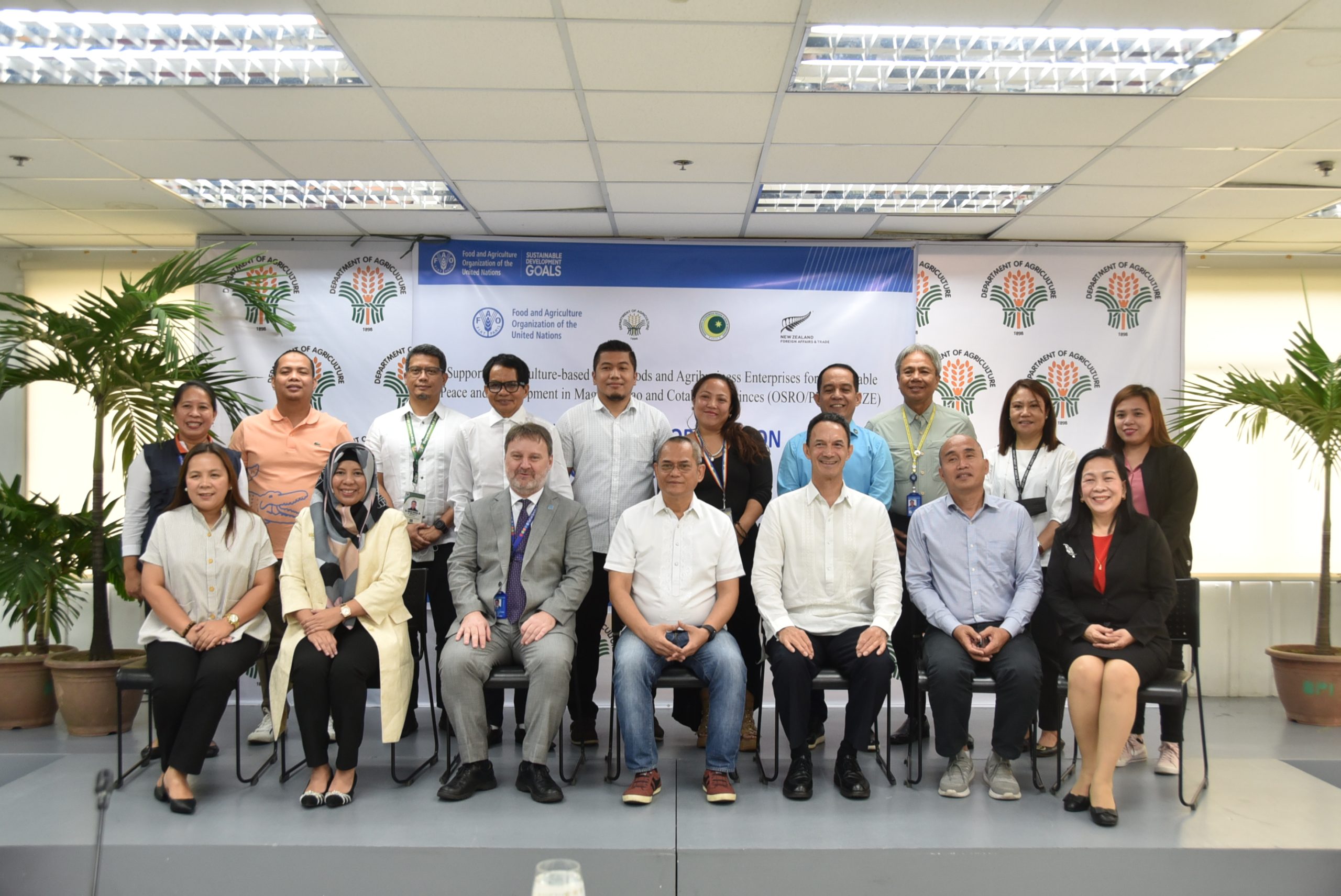
The “Support to Agriculture-based Livelihoods and Agribusiness Enterprise for Sustainable Peace and Development in Maguindanao and Cotabato” (OSRO/PHI/802/NZE) Project is heading towards a strong finish, reports reveal during the 4th Project Coordination Committee Meeting on May 22, just weeks before the end of its implementation.
The $2.583 million project aims to contribute to the attainment of peace and development and inclusive growth in conflict-affected areas in Mindanao by providing support towards the restoration of agricultural-based livelihoods and accelerated agricultural-based enterprises. It is funded by the Government of New Zealand and implemented by the Food and Agriculture Organization of the United Nations (UN FAO) in cooperation with the Department of Agriculture – Regional Field Office (DA-RFO) XII, the Ministry of Agriculture, Fisheries and Agrarian Reform (MAFAR), and local government units (LGUs) in Mindanao.
Currently active in ten municipalities in Maguindanao and six in Cotabato, the said project successfully benefitted 3,170 households or up to 15,850 individuals who are involved in the production of rice, corn, Cardava banana, highland vegetables, goat, and duck as well as food processing.
Dante Eleuterio, FAO Mindanao Office Head and Project Manager, reported that in order to achieve its goal of increased agricultural production and income for the beneficiaries, the OSRO/PHI/802/NZE Project distributed seeds, plantlets, farm inputs, machineries, and post-harvest facilities. It also achieved a 147% success rate in terms of providing training and capacity-building opportunities, having trained 1,748 individuals on crop production, livestock and poultry raising, and farm machinery operations and maintenance.
He further noted that the project also paved market access to farmers and farmers’ cooperatives and associations (FCAs) by forging eight marketing arrangements, forming two community-based organizations (CBOs) and strengthening 14 FCAs, and conducting trainings on value-added products and market linkages to 774 individuals. These helped increase the beneficiaries’ income, as in the case of the Midsayap Cacao Producers Association (MIDCAPA)’s tablea processing venture and the New Leon Rural Improvement Club’s peanut processing agribusiness.
The 16 municipalities also improved in terms of climate awareness and resilience, having benefited from the formulation and/or adoption of their respective Municipal Disaster Risk Resilience Plan of Action in Agriculture, the introduction of gender-sensitive good agricultural practices, and the conduct of trainings on disaster risk reduction and management and climate change tools and principles for 695 Mindanaoans, Elueuterio added.
Meanwhile, a study by the Notre Dame University in Cotabato City revealed that apart from increased agricultural productivity, profitability, and climate resiliency, the OSRO/PHI/802/NZE is also triumphant in its goal of promoting peace and development in the area.
Showing survey results from 448 CBO officers and members and focused group discussions and key informant interviews with CBO Presidents and LGU officials, NDU College of Arts and Sciences Dean Nancy Alombro shared that the interventions provided by the government through the project allowed majority of the farmers to spend most of their time in agriculture, therefore having no time for violence. It also provided them with a clear direction and stability in life, she added.
Praising the OSRO/PHI/802/NZE project for being on the right track, DA Undersecretary for Special Concerns and for the Bangsamoro Autonomous Region in Muslim Mindanao Zamzamin L. Ampatuan expressed hopes for more collaboration with FAO in the future to promote agricultural and economic development in the southern Philippines.
“There will be more engagement between FAO and DA—probably resource sharing, probably we can share with you what we are doing and see what that should be filled in. For DA, perhaps the FAO can help us so that we can be more effective in delivering what the government provides for our farmers. I’m sure there’s a better way we can do things out there in Mindanao,” Usec. Ampatuan imparted.
Present during the 4th Project Coordination Committee Meeting are the concerned DA officials and staff, the FAO delegation led by FAO Representative in the Philippines Lionel Dabaddie, MAFAR Chief-of-Staff Arphia Ebus, Ambassador of New Zealand to the Philippines Peter Kell, and representatives of LGUs and other agricultural stakeholders. ### (Krystelle Ymari A. Vergara, DA-AFID)













